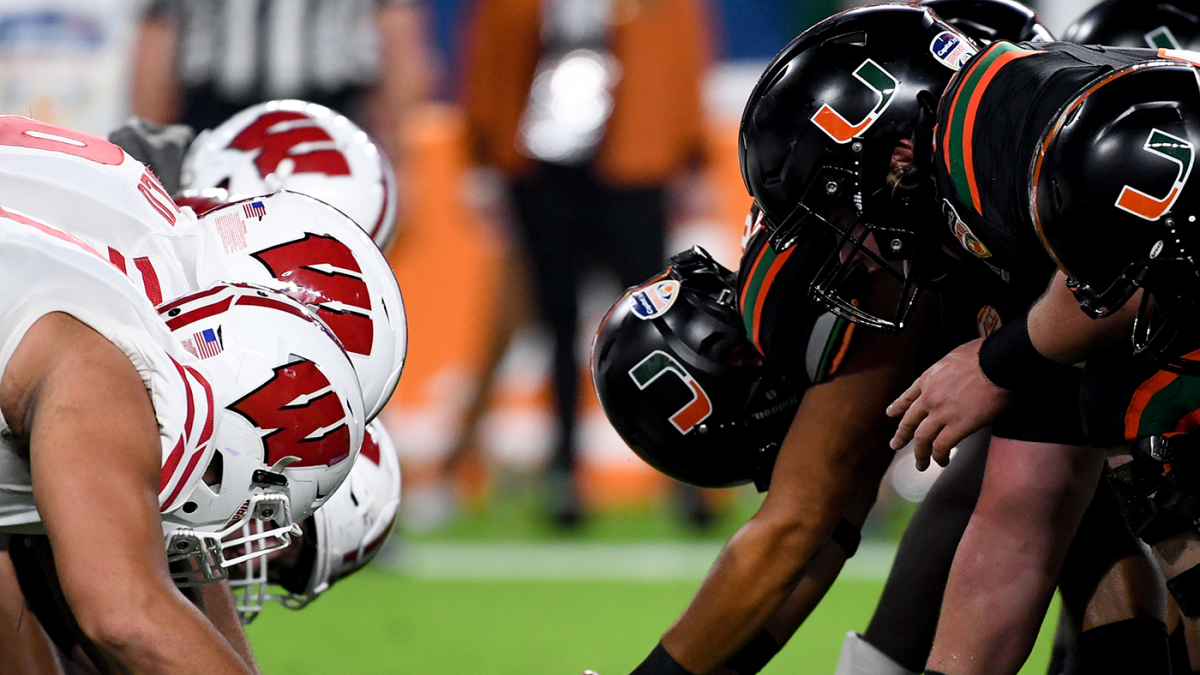The Xavier Lucas Transfer Saga
In the dynamic world of college athletics, the transfer of Xavier Lucas from the University of Wisconsin to the University of Miami has sparked a controversy that transcends the typical player movement. This case is a legal battleground that challenges the evolving landscape of Name, Image, and Likeness (NIL) rights and the transfer portal system. The stakes are high, and the outcome could reshape how universities recruit and retain players, setting new precedents in the process.
The Genesis of the Controversy
The saga began in January 2025 when Xavier Lucas, a defensive back, expressed his desire to transfer to the University of Miami. Unlike typical transfers, Lucas did not formally enter the NCAA Transfer Portal. Wisconsin claimed that Lucas was under a binding two-year NIL agreement with the university and its collective, preventing them from entering his name into the portal. The university alleged that Miami had engaged in communication with Lucas, encouraging his transfer despite knowing about the existing contract.
Lucas’s representation, however, argued that he was denied the right to enter the transfer portal, leading him to unenroll from Wisconsin. His attorney, Darren Heitner, denied any tampering on Miami’s part and advocated for a resolution without escalating the situation. Despite these denials, Wisconsin responded with a strongly worded statement, alleging active interference by Miami. This ultimately led to a lawsuit filed by Wisconsin against Miami, seeking unspecified damages, transparency, and accountability.
The Legal Battleground
The core of the dispute revolves around two critical issues: the allegation of tampering and the enforceability of the NIL agreement. Wisconsin accuses Miami of “tortious interference,” claiming that the university knowingly contacted Lucas and encouraged his transfer while being aware of his existing contract with Wisconsin. If proven, this accusation would represent a significant breach of ethical recruiting practices and could result in substantial penalties for Miami.
Simultaneously, the case hinges on whether the two-year NIL agreement Lucas signed with Wisconsin is legally binding. This is a novel legal question, as the legal landscape surrounding NIL deals is still developing. Wisconsin argues that the agreement constitutes a valid contract, obligating Lucas to remain with the program for the duration of the term. The lawsuit seeks to establish the validity of such agreements and protect universities’ investments in NIL deals with their athletes. The fact that Lucas signed a “rev-share” deal with Wisconsin adds another layer of complexity, suggesting a financial stake beyond a simple endorsement.
The Broader Implications
The Wisconsin vs. Miami lawsuit is being widely described as a “landmark moment” for college sports. It is the first instance of a university taking legal action against another for alleged tampering in a transfer case, particularly one involving NIL. The outcome of this case will have far-reaching consequences, potentially establishing legal precedents that will govern player transfers and NIL dealings for years to come.
Several potential outcomes could emerge. A ruling in favor of Wisconsin could deter other universities from aggressively pursuing players who are under contract with other schools, reinforcing the importance of honoring NIL agreements. Conversely, a ruling in favor of Miami could embolden programs to more actively recruit players, even those with existing commitments, potentially leading to a more chaotic and competitive transfer market.
The case also raises questions about the role of the NCAA Transfer Portal. Lucas’s decision to transfer without utilizing the portal highlights a potential loophole in the system. If athletes can effectively circumvent the portal by simply unenrolling from their current school, it could undermine the portal’s intended purpose of providing a structured and transparent transfer process.
The Big Ten’s Stance and Future Considerations
The Big Ten Conference has publicly supported Wisconsin’s claim of tampering, adding further weight to the allegations. This demonstrates a unified front among Power Five conferences in protecting their institutions from perceived unfair recruiting practices. The conference’s backing signals a willingness to aggressively defend its members’ interests in the evolving NIL era.
Looking ahead, this case underscores the urgent need for clearer guidelines and regulations surrounding NIL and the transfer portal. The current ambiguity creates opportunities for disputes like the Lucas case to arise. The NCAA, along with conferences and legal experts, must work collaboratively to establish a more comprehensive and enforceable framework that protects both the rights of student-athletes and the integrity of college athletics.
A Defining Moment
The Xavier Lucas transfer saga is more than just a dispute between two universities; it’s a defining moment for college sports. It represents a critical juncture where the traditional norms of recruiting and player movement are being challenged by the new realities of NIL and the transfer portal. The outcome of this legal battle will not only determine the fate of Xavier Lucas but will also shape the future of college athletics for years to come, potentially ushering in a new era of legal scrutiny and regulatory reform.
The case underscores the need for a balanced approach that respects the rights of student-athletes while maintaining the integrity of the sport. As the legal battle unfolds, it will be crucial for all stakeholders to engage in constructive dialogue and work towards a resolution that benefits both the athletes and the institutions they represent. The future of college athletics hangs in the balance, and the decisions made today will echo through the halls of sports history for generations to come.

